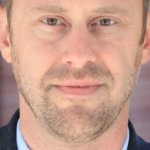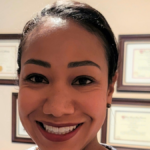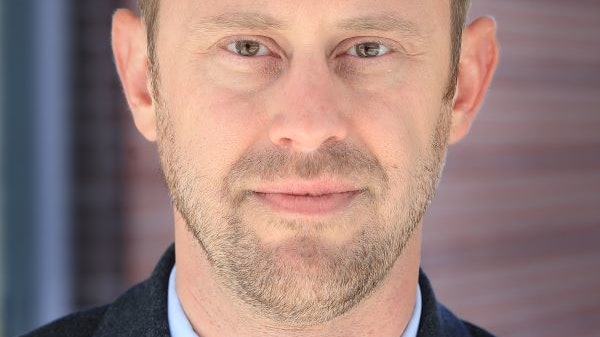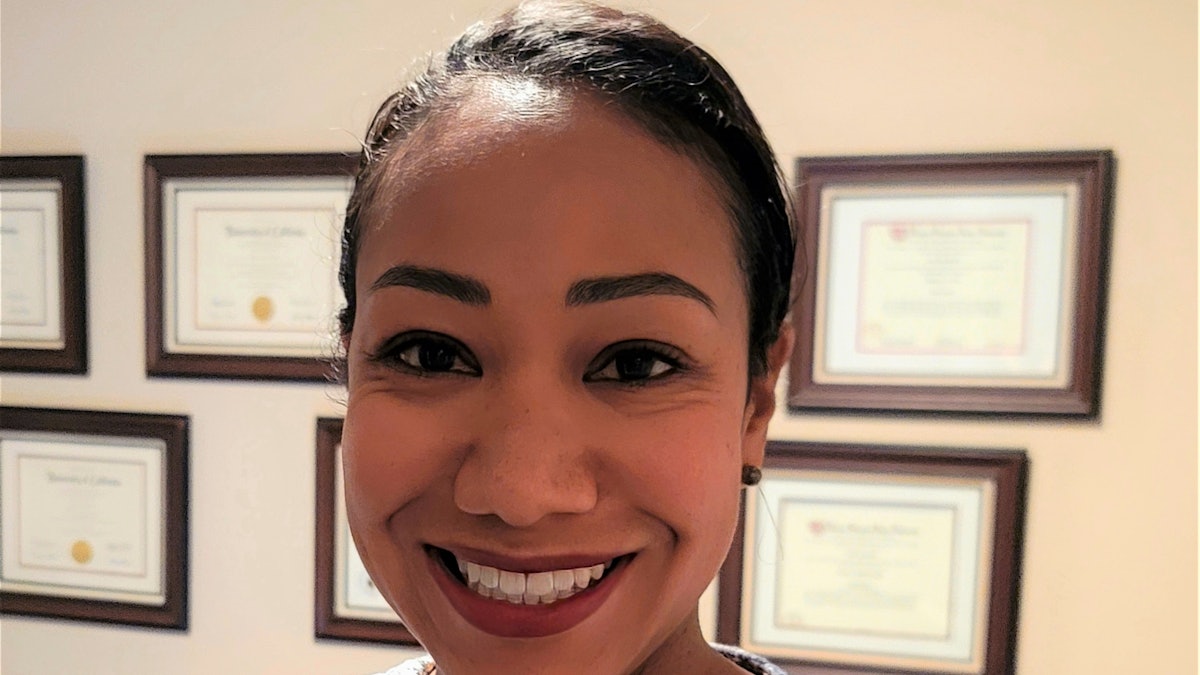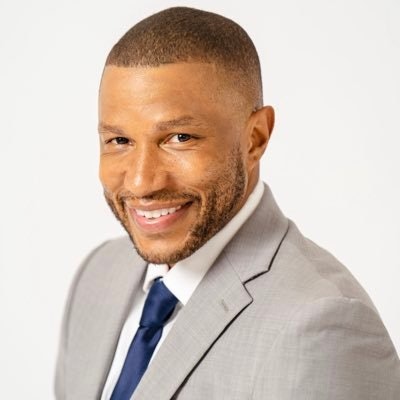Purpose, structure, momentum, and support. These are the four pillars of transformation, ingredients critical to the mission of Complete College America (CCA), the advocacy organization working to improve college graduation rates since 2009.
CCA’s roots began in the state of Indiana, but, by 2018, when Dr. Yolanda Watson Spiva became its president, the organization began to spread its work more intentionally across the nation. Dr. Yolanda Watson Spiva
Dr. Yolanda Watson Spiva
Watson Spiva brought a wealth of knowledge to CCA. Her previous roles included serving as president and CEO of the College Success Foundation in Seattle and Project GRAD Atlanta. She was a former faculty member and attendee of a historically Black college and university (HBCU) and served as a dean at Trinity Washington University, a predominantly Black and Hispanic-serving institution.
Dr. Dhanfu E. Elston, chief of staff and senior vice president for strategy at CCA, says Watson Spiva brings the values of these institutions to her work.
“As an HBCU graduate, I will never forget being in a space where it was clear [the institution] was not just a place to go and survive, it was a place for us to thrive, full of people and communities committed to helping you be successful,” says Elston. “Yolanda went to Spelman. I think the spirit and values of an HBCU education, as far as it being transformative, is something we believe in. No day is ever like work to me, it’s always about making significant movement for our country and our communities.”
Elston is currently the longest serving staff member at CCA, and he says that the organization’s increased focus on minority serving institutions (MSIs), marginalized populations, and first-generation, low-income, and rural community college students began under Watson Spiva’s leadership. These institutions are typically under-resourced and some of the last to access new, innovative technologies and data systems, which is all the more reason he says CCA chooses to partner with them.
“Prior to her joining CCA, we were doing amazing work, but we never had a strategic plan. So, Yolanda came in and talked about the theory of change and intended impact,” says Elston. “Internally and externally, she believes in a culture of completion. She was able to say, ‘CCA has done great work, and at the same time, students got left behind.’”
Elston says that Watson Spiva has aligned the organization “with the north star,” helping students attain “credentials of purpose and value across the country, and recognizing that poor students, rural institutions, Black and Brown students, are further behind than where they should be.”
Watson Spiva’s coworkers make sure that she receives credit for the work she’s done to motivate, shape policy, and build connections and partnerships that consciously expand opportunity for all students.
Expanding its work
CCA has now formed an alliance membership consisting of 52 states, systems and consortia. They have a hand in almost every state across the nation, signing partnership deals with governors and state leaders. The data show the benefits of such partnerships. Community college members of the alliance have seen graduation improvement rates 1.5 times higher than non-members, and CCA Alliance institutions have seen a 10% overall increase in credentials awarded since 2015.
 Dr. Dhanfu E. Elston
Dr. Dhanfu E. Elston
Watson Spiva says CCA will continue to embrace partnerships with institutions whose goals include the ideals for higher education, what it “should strive for and look like,” and organizations that continue to talk about how equity is the answer in higher education, embracing the idea that “diversity is our strength and not a liability.”
Many partnerships that Watson Spiva has fostered intentionally target minority serving institutions (MSIs) and community colleges with desired outcomes. The Lumina Foundation, for example, was keen to partner with CCA to make graduation improvements at HBCUs and PBIs, says Dr. Nia Haydel, vice president for institutional transformation and scaling at CCA.
“[Yolanda] challenges us to think big,” says Haydel. “She’s very insightful and reflective. She’s not going to be satisfied with where we are, ever. It’s always, ‘Why couldn’t we do this? Or try this? Why do 80, when I could do 100?’ It makes me want to be sharp. She role models that leadership for us.”
Dr. Charles Ansell, vice president for research, policy, and advocacy at CCA, says Watson Spiva’s leadership has helped transform CCA into an organization of accelerated growth.
“CCA has moved from a start-up feel, to a much more accelerated growth in terms of activities, success, budget, and staff size,” says Ansell. “I want to see it take off across the country. What does CCA look like when it has 1,000 institutions? I think Yolanda wants to see us get to that place. She’s taking us to part two of growth.”
Ansell says that it’s especially important to engage in this work alongside colleagues who have had experience working at MSIs.
“Representation matters. For an organization that’s explicitly about being inclusive in how we help students and improve graduation rates, doing a lot of work with PBIs and HBCUs, it sure is good when everyone in the executive team has either worked at one of the colleges, went to one, or both,” says Ansell. “Everyone is steeped in the details. Lots of organizations bring in a lot of folks who don’t have a higher education background. I’m not a purist, but there comes a point when knowing the details of what you’re trying to do is really effective, and I think that makes our organization very strong.”
On the ground
Even though CCA employees work remotely, Haydel says that team members make it a point to visit every college that they work with. They gather insights on the leadership team and their motivation toward success and are data focused. The data, she adds, is critical to pinpointing areas for improvement, especially when working with states that might be confronting anti-diversity, equity, and inclusion (DEI) language.
“Even in states with anti-DEI legislations, the states still want improved outcomes. They want more students graduating, they need it so they can meet their economic goals,” says Haydel. “So, it’s going back to data. If you want this number of graduates, we have to increase numbers in these different categories to meet it.”
Ansell works one on one with CCA colleges to help them interpret and understand data.
“There’s not enough use of data in an ongoing way to move the needle on student success measures. We come at it from that problem,” says Ansell.
Ansell walks institutional leaders through the practical steps needed to attain their desired goals. He also spends time helping institutions address affordability in terms of pedagogy, time, and resources. An example of effective pedagogical change, Ansell says, is the removal of remedial courses, which waste students’ time and money while affording no college credit at the courses’ completion.
Making these changes possible means creating a budget balance between state allotments and new approaches to make college and life affordable for students to be full-time if they so choose, says Ansell.
Affordability is critical for students, which is one of the reasons CCA works with all levels and types of institutions, says Dr. Dorothy Styles, vice president for operations and organizational development at CCA.
“CCA understands the importance of readiness for students, and making sure that students have access to quality instruction, making sure that admission practices and basic needs supports are there for students,” says Styles, adding that Watson Spiva understands the additional supports marginalized populations might need to access postsecondary institutions.
“Finance in college is very important and making sure it’s affordable. That’s why a lot of Yolanda’s work has been around the importance of state institutions and making sure that students have access to credentials of value,” says Styles. “Some careers don’t require four-year degrees — technical degrees and credentials of value are just as significant as it relates to workforce readiness and building a marketable workforce. She fully understands that connection.”
Watson Spiva has prioritized CCA’s growth through embracing new ideas and new approaches to higher education equity. The organization has expanded its policy outreach at the federal and state level, and CCA has embraced the potential of AI technology and extensive data.
“We’re honest brokers. If the data tells us something about where you need help, it’s not in a way that’s wagging a finger, but outstretching a hand. How can we help you overcome this barrier and reach this goal?” says Watson Spiva of the work that CCA does with colleges and universities. “When institutions are doing something strong, we share it broadly — more than just social media or a newsletter, we bring exemplars to other states as a content expert to talk about their successes in implementing strategies.”
This “speakers bureau,” as CCA Watson Spiva calls it, connects with institutions in experience and practicum. It also has helped reduce the time for full strategy implementation.
“We believe if you scale and adopt certain strategies, content experiences, research and resources, you can drive behavioral change. We’ve been at the forefront of improving community colleges, especially with historically excluded folks,” says Watson Spiva.
While she has hopes to one day sign partnerships with governors and legislators from all 50 states, she knows that CCA is already connecting with institutions across the U.S. Her work won’t be done, she says, until all students in the country receive a fair and equal opportunity for academic success and social mobility.
“We make sure that these institutions, the folks working with students, are actually changing the way they perceive value of students there. In the past there’s been a bit of hierarchy, if you will. There’s been elitism amongst institutions, where folks are more about how to exclude students than provide access,” says Watson Spiva. “The focus has been on making students college ready. And we shifted the narrative to making colleges student ready.”
#Moving #Needle #Graduation #Rates
